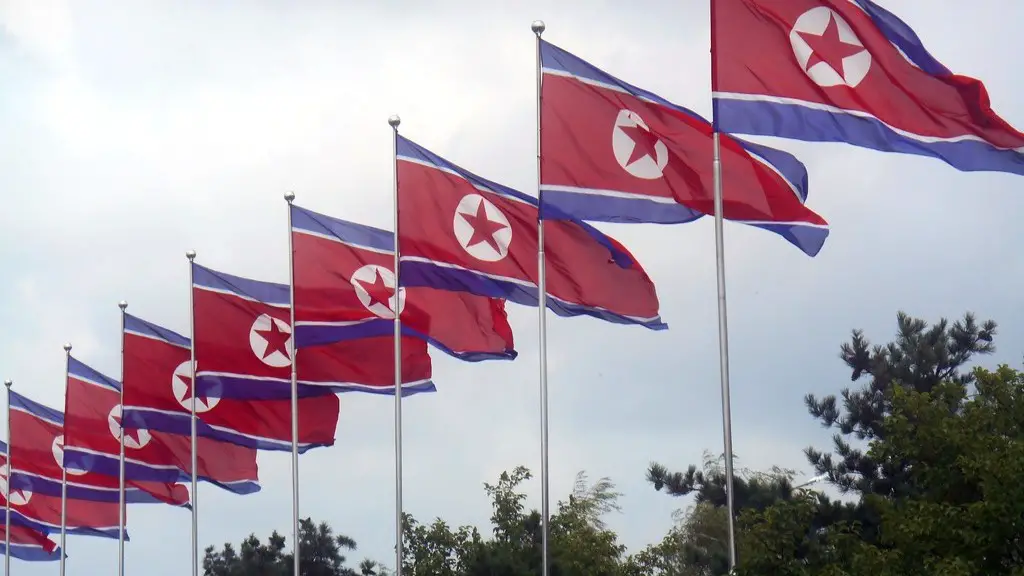Section 1: North Korea’s Regime
North Korea’s repressive regime has been a major challenge for the international community for decades. The North Korean government has become extremely isolated from the rest of the world due to its human rights abuses, nuclear ambitions, and provocative rhetoric. This isolation has prevented the international community from being able to effectively address the threat of North Korea. Most of the world’s leaders remain frustrated with the current situation and can do little to change it except to wait and see what happens.
Despite efforts to pressure North Korea, there have been few tangible signs of progress in solving the problem. In 2017, the United Nations imposed its most aggressive sanctions on North Korea yet, with the goal of slowing the country’s access to money and resources used to finance its nuclear ambitions. But the sanctions have had no visible impact.
Section 2: North Korean Human Rights Violations
Moreover, the human rights situation in North Korea remains dire. For example, thousands of North Korean nationals are victims of forced labor, extra judicial killings, mass surveillance, censorship, and torture. According to a report from the United Nations, North Korea is committing crimes against humanity with impunity.
North Koreans are prohibited from leaving, and those who do escape face a bleak reality: those who make it out are often facing severe poverty, persecution, and human trafficking. This is why the international community must act now to ensure the safety of North Korean citizens and put an end to the brutal policies of the North Korean government.
Section 3: The Impact of North Korea
The effects of North Korea’s actions go far beyond its borders. The country’s nuclear ambitions and provocative rhetoric have created an unstable and dangerous situation in the region. North Korea’s belligerent behavior has been interpreted as a threat to the security of South Korea, Japan, and the United States.
In addition, the growing threat of North Korea’s weapons capabilities has caused other countries in the region, such as China, to increase their military presence in order to deter the North Korean threat. This leads to an escalating arms race, which only increases tensions in the region.
Section 4: North Korea and the International Community
The international community must respond to the North Korean government’s oppressive rule and its weapons program. Unfortunately, the international community has been unable to find an effective solution. This is due to a variety of factors, including the intransigence of North Korea’s leaders and a lack of political will among the world’s major powers.
Moreover, North Korea is heavily armed and insulated from international criticism, making it difficult for the United Nations or other international organizations to intervene in the country. This has lead to a sense of helplessness among the international community, and a feeling that, despite their efforts, nothing can be done to change the situation in North Korea.
Section 5: Potential Solutions
There are some possible solutions to address the North Korean situation. One of the most promising is the Six-Party Talks, which are a series of negotiations between North Korea and its neighbors, including China, Japan, Russia, South Korea, and the United States. Through these talks, the six nations work to find a peaceful resolution to the North Korean situation.
In addition, the United States and other countries could consider imposing tougher sanctions on North Korea, including restrictions on the country’s access to funds and resources used to finance its nuclear program. Such measures could send a powerful message to North Korea and demonstrate the international community’s commitment to a peaceful resolution.
Section 6: Strengthening International Relationships
It is also important for the international community to foster greater dialogue and cooperation with North Korea in order to lessen the likelihood of conflict. Through these efforts, the international community could potentially provide North Korea with some respite from the sanctions and sanctions-busting activities, and potentially open up avenues for diplomacy.
At the same time, it is essential that the international community remain united in its condemnation of North Korea’s human rights abuses, its weapons program, and its threats to regional security. This would send a strong message to the world’s most powerful nations that action must be taken to resolve the North Korean situation.
Section 7: Encouraging Change
The international community must also recognize that any change in the North Korean situation will take time and require patience. The current situation will not be solved overnight. However, by taking concrete steps to support the North Korean people and developing long-term strategies for peaceful resolution, we can create an environment that is conducive to change.
In addition, the world’s leaders must take into account the potential consequences of any action taken against North Korea. Any military action could lead to catastrophic consequences for civilians on both sides of the conflict and the region’s stability. For this reason, it is essential that the international community work together to deescalate tensions and find a peaceful solution to this crisis.
Section 8: Education and Awareness
Finally, it is vital to educate the public about the reality of the North Korean situation. By raising awareness about the North Korean government’s abuses and the urgency of the crisis, the international community can spur further action from the world’s most powerful leaders.
Through increased public as well as government engagement with the issue, the international community can demonstrate its commitment to resolving the North Korean crisis. This could potentially open up avenues for dialogue and negotiation between North Korea and its neighbors and the international community.
Section 9: Findings and Analysis
Despite the complexity of the North Korean situation, it is clear that the international community must take steps to address the crisis. Through a combination of economic sanctions, diplomatic efforts, and public engagement, the international community can help bring about real change in North Korea.
The situation in North Korea is a difficult problem, but one that must be solved. It is essential that the international community come together to find a peaceful resolution and to protect the rights of North Korean citizens and those in the region.
Section 10: Implications of Non-Action
The world has already seen what can happen if leaders do not take action to address the situation in North Korea. This includes regional instability, an increased risk of military conflict, and human suffering. It is therefore imperative that the international community works together to put an end to North Korea’s weapons program, human rights abuses, and belligerent behavior.
Failure to address the North Korean situation would not only endanger the security of the region but also put millions at risk of persecution and poverty. It is clear that inaction is not an option and that the world must take decisive and collective action to bring about a lasting resolution to the North Korean crisis.


